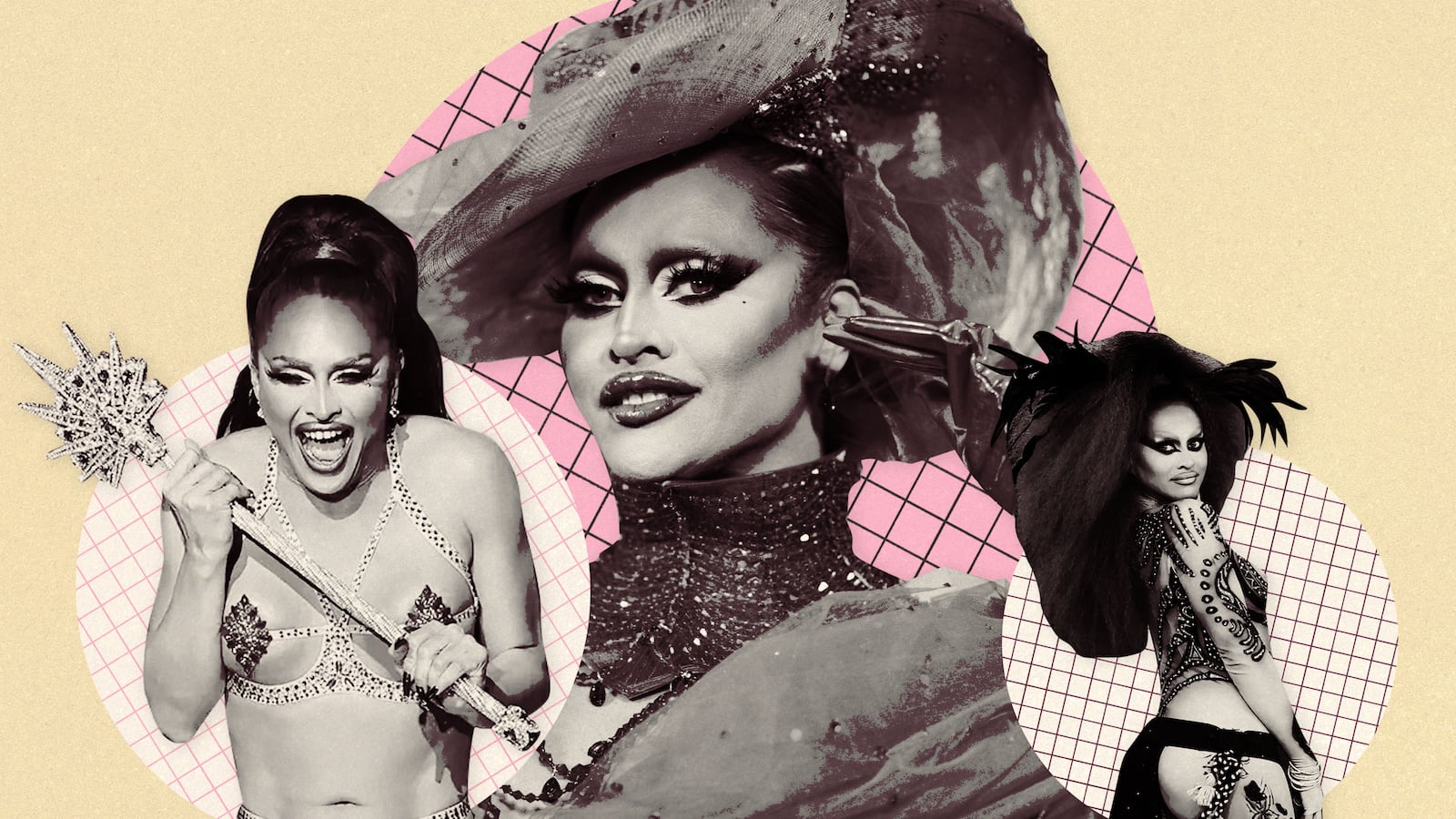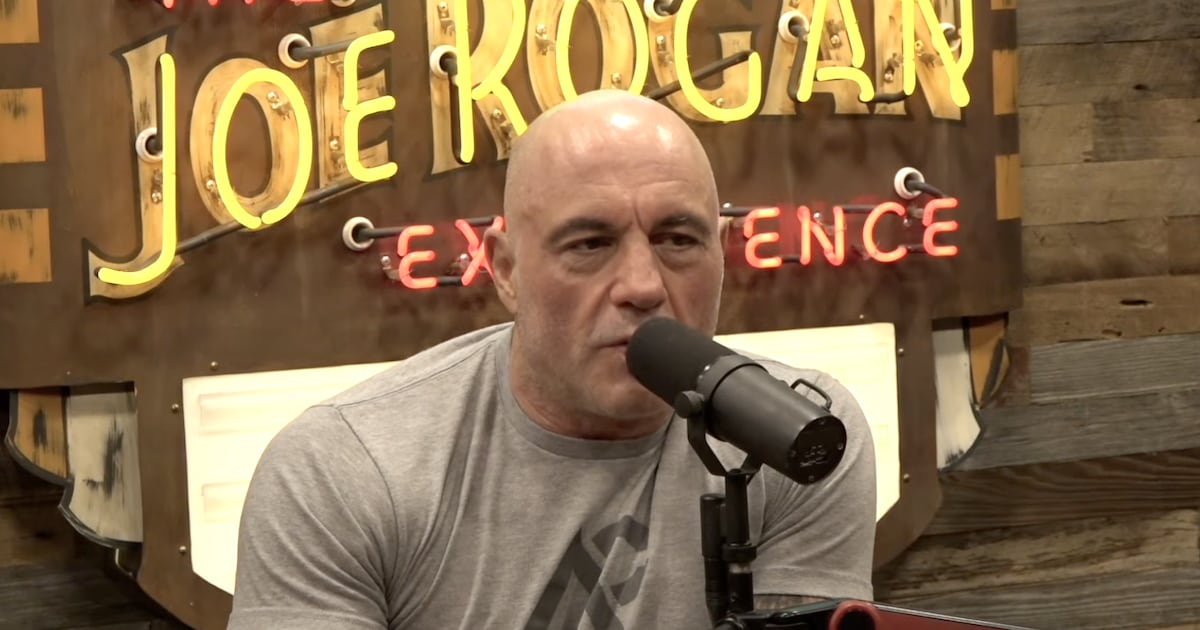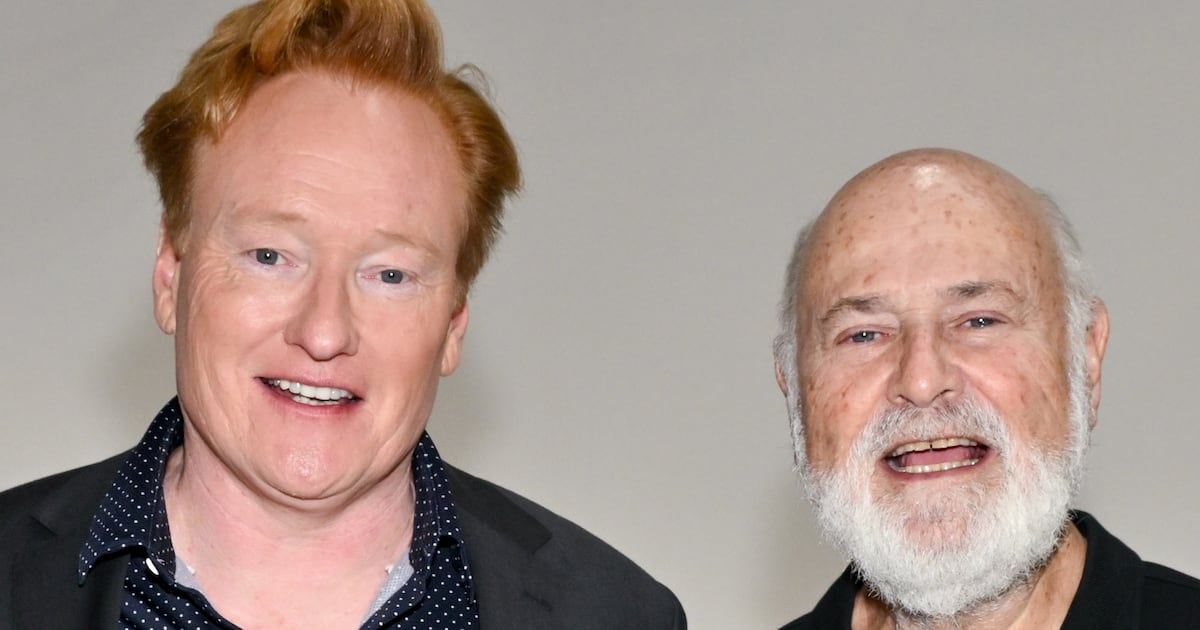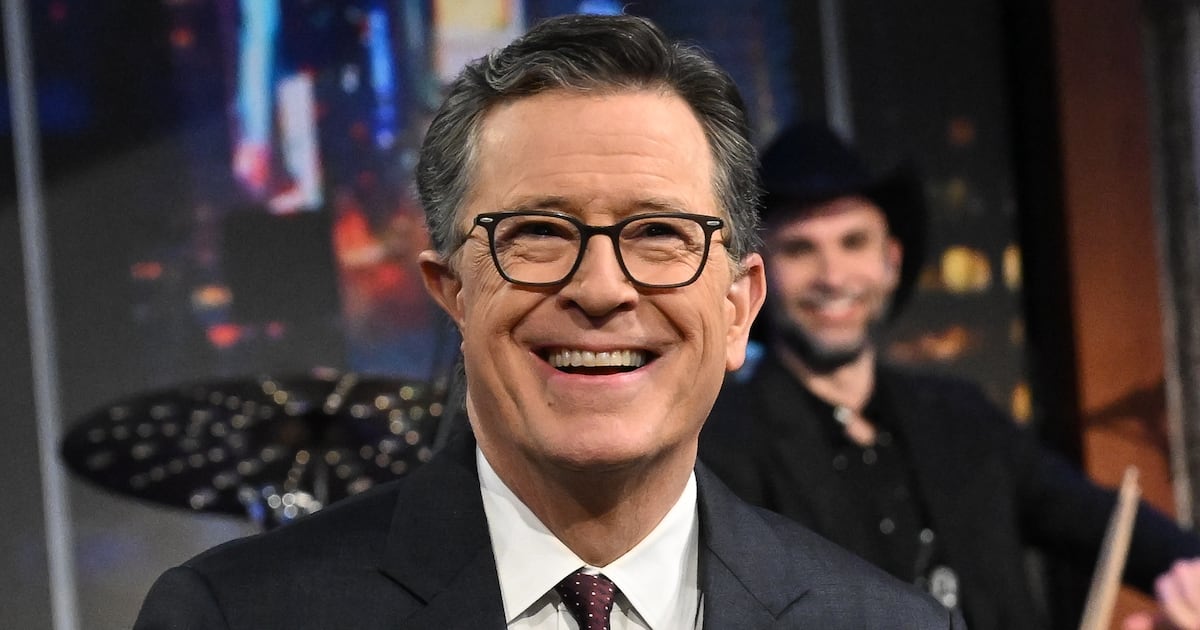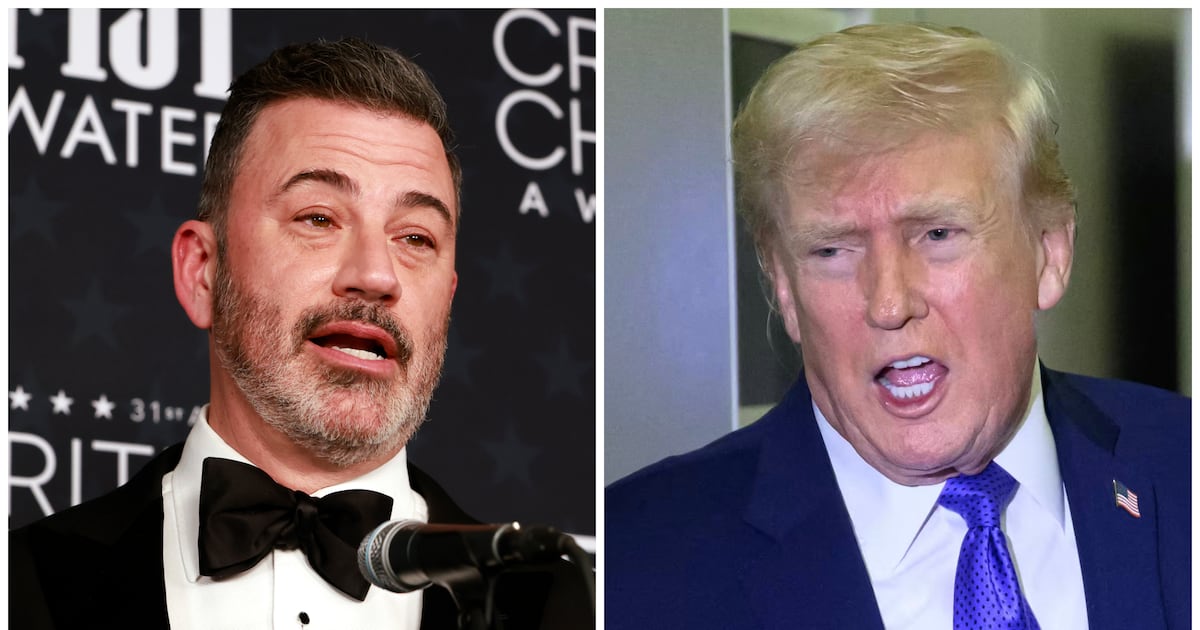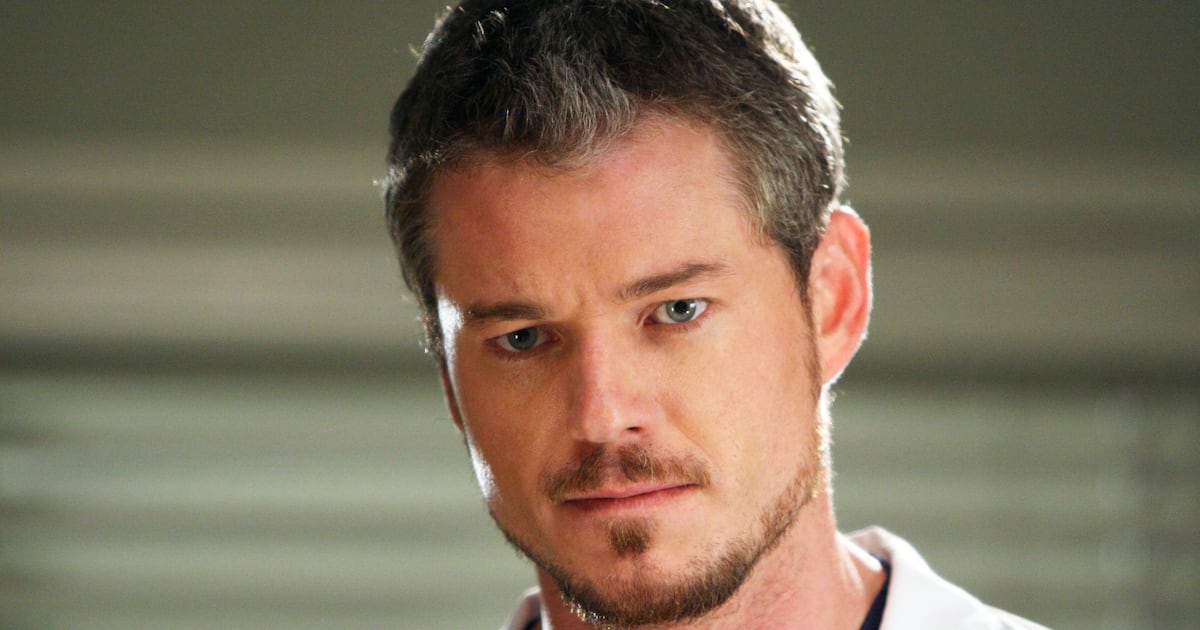Season 15 of RuPaul’s Drag Race was a watershed installment of the renowned reality show. Though Drag Race has been groundbreaking from the start, its supersized 15th season felt like the dawn of a new era: The challenges were more intense, the personalities (and egos) were even bigger, and the show’s societal impact met a level that its contestants’ immense talent deserved.
From the moment her entrance look’s ostrich feathers brushed the top of the workroom door for the first time, the frontrunner was Sasha Colby, a decorated drag veteran who has won some of the most prestigious titles that the community has to bestow on its artists. (Though the rest of the Season 15 queens made damned sure to give her a run for her money, right up until she was crowned in the finale.)
All of that fire in the Drag Race workroom resulted in some of the series’ most emotional episodes yet, like a Wigloose musical that sent up Footloose by throwing the queens into a town where drag had been outlawed. The episode aired eerily timed to an onslaught of national government legislation that aimed to ban or restrict public drag performances, and strip citizens of gender-affirming care.
“With Wigloose especially, we shoot eight months to a year ahead,” Drag Race executive producer Tom Campbell told The Daily Beast’s Obsessed. “And, as has been true since the beginning of Drag Race, the drag gods shone upon us and it caught fire in such a divine way.”
That emotional resonance—combined with the show’s typically mesmerizing lineup of challenges and twists—resulted in another seven Primetime Emmy nominations for Drag Race, bringing the show’s tally to 63 over the course of its run.
A few months ahead of the Emmys ceremony in January, Colby and Campbell spoke with The Daily Beast’s Obsessed about Season 15’s most impactful episode, the notion that being on television legitimizes a drag artist, and what mainstream recognition means for representation in a time when queer rights are the subject consistent government and societal attacks.
Sasha, what was it like for the first five months of 2023, seeing the show air and watching viewers really connect with this cast of queens during such a politically and socially tense time?
Sasha Colby: For lack of better words, it’s a wild simulation. [Laughs]. To go from 16 girls who are all pretty anonymous except for in the drag world, to being shot into fame, it’s been a gradual, momentum-building thing. The more people watch, the more people saw us being vulnerable on television, and saw queer stories that so many people can relate to. I think it was really important. Especially in these political times, who knew during filming that it would be so important right now and that the things that we were talking about would have traction?
Apart from Season 9, which aired right at the top of 2017 when Trump was inaugurated, Season 15 was the most politically charged season. I imagine, Tom, that you didn’t go into the season thinking that it was going to be so tense between writing and when the season aired.
Tom Campbell: RuPaul says, “I make a political statement every time I bat my false eyelashes.” We don’t have to try to be overtly political. By just existing and celebrating each other and our culture, it’s a political statement. That’s how we start with it. All good ideas for Drag Race start with a really stupid pun. That's where Wigloose came from, before the political part of it we’re just like, “[How about] a town you can’t sing or dance, where you can’t do drag?”
The only real issue that we were aware of that was sort of new was drag queen story hours, people were resisting some of those and that wasn’t pleasant. So we did [Wigloose], and as has been true since the beginning of Drag Race, the drag gods shown upon us and it caught fire. The Tennessee legislation, Texas, on and on. It was overwhelming. Every day you woke up, [you] felt sick to your stomach. Coincidentally, here comes Drag Race. It came together in such a divine way.
The timing was perfect.
Campbell: That episode was in the can and was being edited, but we were like, “What the heck do we do?” This isn’t just a Tennessee issue. These are lies, miscommunications, and accusations that were permeating lots of parts of our culture and our government. And so [we thought of the] ACLU, the perfect place to go. And the Drag Defense Fund—which, MTV and [production company] World of Wonder putting that together was just so smart. The fans continue to donate to it. But there’s no one fix to this. It’s a constant battle. Drag queens have always been on the front lines of social change in our community. And we are once again, whether we like it or not.

Sasha, I’m curious what it was like for you to be a part of Wigloose. Was the political atmosphere and the ensuing response something that was on your mind when you were filming it?
Colby: When we were filming it, the drag story time conversation was going on and we would hear the rumblings of how crazy this world is. In my head, I was like, “Is Wigloose going to have the same impact when it airs as it would right now?” I thought this whole thing was gonna blow over—sadly mistaken. But in hindsight, seeing it happen when it did, it was like, “We are at the forefront as drag entertainers, and this show, in particular, is the head of the front line.” We are the faces that put a person to this “Drag Monster” that they want to create.
The platform is huge.
Colby: [With queer people]—especially the trans community—there’s not a sense of real structure and leadership. To have the ACLU’s organization [rally] around these things is really important because once you give us organization, baby. It’s a wrap. We’ll bring gifts, we’ll decorate, we’ll turn it out. We’re finding that organizing is going to make this most effective and we just have to keep doing our drag. At the end of the day, what this is always about is people trying to take control over other people.
What we see is that these people who are hiding their lives because of religion, or family, or obligations in this binary world that they live in, they’re not allowed to live their lives truly. And the audacity of us living our lives makes them so mad, especially if you’re trans. “How dare you think you can just do whatever you want? I need to end that because I’m so miserable.” I think we have to live audaciously, just keep doing it. It’s making them miserable. [Laughs].
When the episode aired, none of the cast seemed like they were intimidated. There was so much happening politically, but I didn’t get a sense that any of the cast of queens who were a part of that episode were at all intimidated by what might happen.
Campbell: It’s not new. What’s so depressing about it is that it keeps creeping up. And history tells us that the pendulum swings back and forth. You make all these strides, then it causes the reaction. I’m not taking it lightly, but I’d like to think that because we’re making progress, it creates more of a rumbling.
Colby: And I think with that pendulum swing, the friction of us experiencing going back to that fear is going to propel the next generation to be more vocal, which we see happening. Gen Z is not standing for any of that, babe.
It’s a competition show and people like to see people competing, but the audience is also tuning in because there’s sort of that element of safety and a place where they can identify. There aren’t many shows that you can come to as a legitimate safe haven.
Colby: The thing that makes it safe, inherently, is because it is an all-queer show made by queer people. The stories are being told from our actual voices, where a lot of times we’re the token or there’s always that cishet voice of the outside looking in. Drag Race is like being a fly on the wall and going into a gay club and just watching it happen. I think that’s why a lot of straight people enjoy it.
The Emmys are a big part of that mainstream popularity. Tom, does producing each season feel like a major event with all of that awards recognition in the past seven years? What’s that pressure like?
Campbell: When we first pitched this show back in 2008, we thought for sure that we were going to be big. People took our pitch when Bush was still president. And [executives] would say, “We love you, we love Ru, but we can’t get this past ad sales.” So, we ended up on Logo, which at the moment was the perfect place for us to be. We were able to grow and nurture the show. We were just grateful to be on every year.
There was no, “We’re creating an Emmy-award-winning show.” We don’t do it for the awards. Just to be taken seriously by our peers and to be supported and nurtured by them is really important. It’s less about personal gratification and more about recognizing what we’re trying to do. Corny, but it’s true. Love is at the center of the show. We love making it. I think that's what's infectious.

On that topic of awards recognition, Sasha, what does it feel like to be recognized by such a significant voting body as the Television Academy? You’re only the second trans winner in the main franchise’s 15-season history. There are certain fans that might argue that Emmy wins mean that the series is going mainstream or selling out, but queer visibility is critical in the midst of political strife. How do you weigh those two things?
Colby: Like Tom was saying when they were shopping it around, people did not know what this thing would look like. They were going off of what was already the status quo or in the conversation. But there is a space here for Drag Race, and how much space needed to be filled with queer history, drag, and pop culture. The whole thing about awards, the idea is not that we go into the workroom wanting to make Emmy-award-winning television. I went in trying to heal, to tell my stories, and win. I’m going to take this opportunity, because give a queer person the opportunity and we could go so far.
The community constantly proves that.
Colby: I think what resonates when the awards come is when they see the impact that [the show] had on society. I think then these awards shows have to fall into place because they have to speak on what the audience is gravitating toward. Drag Race is every reality show put into one, plus queer stories. That’s never, ever been told. We’re the last frontier in storytelling and media: queer stories. You’ve seen American media take everything from every other culture, but we are the ones who hold the stories that mean the most right now.
Campbell: And we don’t take ourselves seriously, just like drag. That’s the great thing about drag within the queer community. It’s like, there is a sense of humor, there’s a sarcasm, there is a freedom to say and do whatever the fuck you want. So I don’t know what it’s like as a competing reality show, but we laugh every day. We create moments that make the world laugh.
We’ve talked so much about the positive impact of the show. But I wonder—for some of the queens who have auditioned for the show and not been cast—if there’s any sort of sense of illegitimacy among those queens. Sasha, you achieved so much before you were cast, was that something that you experienced?
Colby: It’s really all about intention with anything. To start drag because you want to be on Drag Race is quite a new, but very prevalent, fad for a lot of queer kids coming up, because we are in a very “fame game” kind of society. We value people who are on our Instagram feed. So the intention of starting drag to be famous, I don’t think that has a lot of longevity or stamina. Do drag because you love to do it, because you need to, because you’ve been pushed out of every sector of entertainment where you’re not allowed because you’re too queer.
And here is a major, mainstream platform.
Colby: My intention is always, why did I do this? Why did I audition now? Why would I want this now? Because everyone’s like, “You’re already Sasha Colby!” Yeah, but I realize my gift is performing and telling stories. This isn’t for me. It’s to give me a platform to help others. I think when we think about getting on a show, the biggest thing that warms my heart is talking to people and hearing that they finally don’t feel alone because they saw one of us on their screen. A cast member has a story of trauma that a viewer can relate to. You see unabashed stubbornness. I’m a fighter; I’m going to stand, and you’re going to accept me.
It’s a responsibility, you know. It’s a heavy weight to take. A lot of girls have crumbled because of the fame. You have to really understand your intention and what you want to do. You have to want to leave this place a little better.
We were talking a bit about the ACLU drag defense fund. Drag Race has its queens hold up signs saying “Support Local Drag” “Register to Vote.” What else can people do 365 days a year—not just during Pride season—if they want to get every outsider in here and active?
Colby: Get a drag queen friend! I think a lot of times we have to diversify who our friends are around us. You know, you surround yourself with the people that you want to uplift, who you want to be by. If you’re not in a pretty diverse group, maybe you’ve got to start from there. Really understand why you’re only wanting to be by only you know, other white twinks in WeHo.
Campbell: And we never want to preach in the show, but we do put up those messages up at the end of the episodes for a reason. Because I think the most important thing people can do is vote. I was horrible during the Trump administration. I admit, I posted too much. I apologize to the world, I changed no one’s mind. It’s great to express your voice but it doesn’t matter unless you vote. And just keep spreading the love.
Colby: There are a lot of people that come to a live performance with a Drag Race girl. So I always like to say, “Be supportive of local drag artists.” But really, because this fandom is so vigilant? Go watch your local drag. You could genuinely be watching the next Drag Superstar. And who doesn’t love to say that I knew them when?
Keep obsessing! Sign up for the Daily Beast’s Obsessed newsletter and follow us on Facebook, Twitter, Instagram and TikTok.

